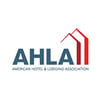AHLA urges Congress to protect consumers, federal workers; spur hotel hiring
Congress is considering bipartisan bills to create lodging fee transparency, prevent human trafficking, grow the hotel workforce, and cut red tape
WASHINGTON – The American Hotel & Lodging Association (AHLA) this week urged congressional leaders to take up important legislation that would protect consumers from hidden fees in their hotel booking journey before the 118th Congress ends Jan. 3, 2025.
In a letter to House and Senate leaders, AHLA President & CEO Rosanna Maietta called on lawmakers to move lodging fee transparency legislation – the House-passed No Hidden FEES Act or the Senate’s Hotel Fees Transparency Act – to President Biden’s desk. These bills would protect consumers by establishing a single and transparent nationwide standard for mandatory lodging fee displays.
Maietta also called on lawmakers to take up the HOTEL Act, which would encourage federal workers traveling for business to stay in hotels with anti-human trafficking programs.
AHLA has a longstanding record of rallying hoteliers around policies to protect consumers and guests and has been a leader in recent efforts to establish a federal standard for lodging fee transparency. Additionally, the AHLA Foundation’s No Room for Trafficking initiative has been helping hoteliers identify and stop instances of human trafficking since 2019.
In her letter, Maietta also urged Congress to pass two other key pieces of legislation: the Closing the Workforce Gap Act, which would help hoteliers cope with the nationwide labor shortage, and the Red Tape Reduction Act, which would help account for substantial sums of unreported income within the short-term rental industry.
“From growing the workforce, to protecting consumers, preventing human trafficking, and cutting red tape, these commonsense, bipartisan policies are a win-win for hoteliers, employees, and consumers. We encourage lawmakers to support their swift passage,” said AHLA President & CEO Rosanna Maietta.
The hotel industry supports nearly 1 in 25 American jobs, and this year hotels are projected to pay employees a record $123 billion in wages, salaries, and other compensation while generating nearly $83.4 billion in tax revenue.
Read AHLA’s letter to congressional leaders here.
Background Info
- The House-passed No Hidden FEES Act (H.R. 6543) and the Hotel Fees Transparency Act of 2024 (S. 2498) would protect consumers by establishing a single and transparent nationwide standard for mandatory lodging fee displays. That standard would ensure prospective hotel guests have access to all-in, up-front pricing information across the entire lodging industry, including short-term rentals, online travel agencies, metasearch sites, and hotels.
- The HOTEL Act (H.R. 9681) would help prevent human trafficking and protect the federal workforce by encouraging federal workers traveling for business to stay at hotels with anti-human trafficking programs. To qualify under the bill, hotel training must be developed in consultation with either a state government, human trafficking survivors, survivor-led anti-trafficking organizations, or any organization that is nationally recognized for its expertise in this area – for instance, the AHLA Foundation.
-
The Closing the Workforce Gap Act (H.R. 7574)
would help hoteliers deal with ongoing labor shortages by replacing the arbitrary annual cap of 66,000 available H-2B temporary visas with a new, needs-based system. - The Red Tape Reduction Act (S. 1725) would take an important step toward creating a more level playing field between the hotel and lodging industry and alternative accommodations, such as short-term rentals.
About the American Hotel & Lodging Association (AHLA)
The American Hotel & Lodging Association (AHLA) is the largest hotel association in America, representing more than 30,000 members from all segments of the industry nationwide – including iconic global brands, 80% of all franchised hotels, and the 16 largest hotel companies in the U.S. Headquartered in Washington, D.C., AHLA focuses on strategic advocacy, communications support, and workforce development programs to move the industry forward. Learn more at www.ahla.com.
